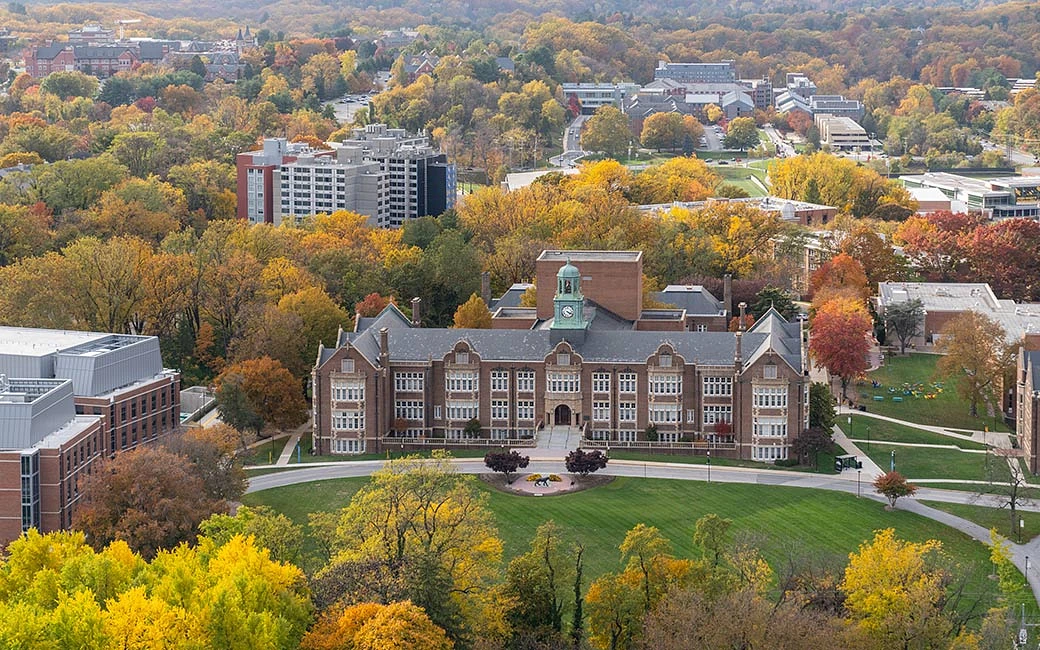The projects funded by the 2023 Towson University Foundation (TUF) Grant Awards represent a wide variety of initiatives and include interdisciplinary research in the fields of criminal justice, health care, forensics and nanoscience as well as academic success, mental health, leadership and entrepreneurship.
The five projects were awarded a total of $100,000 in funding.
“We are excited about the programs that are being funded this year,” says Edna Primrose ‘84, TUF president. “They represent TU’s commitment to academic excellence, research, community and caring. The pool of applications was high caliber, and we are pleased that interest in the TUF grant program continues to grow each year.”
The TU Foundation was established in 1970 as a non-profit 501(c)3 corporation, allowing donors to make tax-deductible contributions in support of TU scholarships and fellowships, faculty development, research, outreach projects, academic and other programs.
This round the foundation received 19 applications for more than $450,000 in funding from faculty and staff representing five of six colleges and the divisions of academic affairs, student affairs, enrollment management and the Office of the President. This is TUF’s fifth consecutive year awarding grants totaling $100,000.
The following projects will benefit in 2023 from TUF grant awards made in December 2022.
The Correlation Between Communication and Cognitive Disorders, Academic Success, and Involvement with Disciplinary Actions for Black and Latinx Youth ($25,000)
A collaborative project from Shameka Stewart, associate professor in the Department of Speech-Language Pathology and Audiology in the College of Health Professions and Elyshia Aseltine, associate professor in the Department of Sociology, Anthropology and Criminal Justice in the College of Liberal Arts.
It investigates communication and cognitive disorders (CCD) in Black and Latinx males and potential correlation with disciplinary actions.
“Our research hypothesizes that untreated or undiagnosed CCD in Black and Latinx youth may be directly correlated to their academic success, risk of disciplinary involvement and later involvement with the criminal justice system,” says Stewart, who has a focus on child language disorders.
With the funding, the research team will identify factors related to CCD in the targeted population, disseminate the findings to the broader professional community and educate speech-language pathology and criminal justice students about social and youth justice through an elective, interdisciplinary Inside Out course. Additionally, this research project will recruit undergraduate and graduate research assistants from both departments.
Rapid Identification of Gunshot Residue Using Surface-enhanced Raman Spectroscopy ($25,000)
Current testing for gunshot residue (GSR) in forensic casework is time consuming and expensive. Professor Ellen Hondrogiannis and associate professor Mary Sajini Devadas in the Department of Chemistry in the Fisher College of Science & Mathematics will work to develop a cheap, rapid and sensitive analysis for screening and confirming GSR. The research will yield shorter turnaround times for prosecuting cases, thereby improving social justice.
This grant-funded project will engage five undergraduate students in forensics research and open opportunities for them to intern through local laboratories.
“The hands-on experience in research and experiments, using an interdisciplinary approach [bringing together both] forensics and nanoscience, will serve as a resume builder for undergraduate and graduate forensic students,” Hondrogiannis says. “They will gain skills in a forensic crime laboratory, giving them an added advantage for employment in the field.”
The Dr. Nancy Grasmick Leadership Institute 2023 Signature Forum – Ethical Leadership ($25,000)
Intended to inspire successful careers rooted in strong leadership principles, the annual Signature Forum from the Dr. Nancy Grasmick Leadership Institute will become the preeminent leadership symposium and a catalyst for strong and lasting connections from high school through college and beyond. The forum envisions the TU campus overflowing with 400 Maryland leaders from corporations, for-profits, government and academia fully engaged with a top-tier, nationally recognized keynote speaker around the relevance of ethical leadership in today’s culture.
“Thanks to this grant, the Signature Forum in Ethical Leadership will launch in September 2023,” says Nancy Grasmick, TU presidential scholar and visionary behind the Dr. Nancy Grasmick Leadership Institute. “The opportunities post-forum are pervasive and align beautifully with the programs we offer in the Institute.”
The forum will focus on providing Maryland leaders, educators and policy makers with access to the newest information and research on current topics, building a tapestry of leadership development programs where leaders stand apart to positively impact their businesses, the economy and the community.
Suicide Prevention: Expanding Campus Support ($10,900)
Almost 40% of the TU Counseling Center’s (TUCC) 710 clients served so far in the 2022–23 academic year reported having had suicidal ideation. To address this issue, the TUCC aims to expand the ways it reaches students who may be struggling with suicidal thoughts, feelings or behaviors. TUCC seeks to provide increased training to faculty, staff and students on how to notice and support students in distress and provide easily accessible and strategically placed crisis information to students.
“The TU Foundation grant will allow the Counseling Center to share, promote and expand numerous suicide prevention initiatives,” says Counseling Center Director Mollie Herman. “Having the whole campus involved in suicide prevention efforts provides a critically important security net to keep our students safe and connected.”
Tutoring & Learning Center Peer Academic Coaching Program ($14,100)
The Tutoring & Learning Center (TLC), in the Division of Enrollment Management, will implement a peer academic coaching program to meet the growing number of students who need support.
“With the number of students on academic warning increasing by 33% since fall 2021, there is a significant demand from students seeking coaching,” says Janae Carter, learning specialist with the TLC. “Some of this increase is due to the lack of college preparation during COVID. Students have been having difficulty adjusting to life in the classroom and, for freshmen, college-level work.”
The TLC’s professional staff will expand their human resources to train peer coaches to help students enhance their general study skills and learning strategies, such as self-efficacy and metacognition. With the grant funding, the program will support between 150–200 additional students annually.
Skip past news feed



